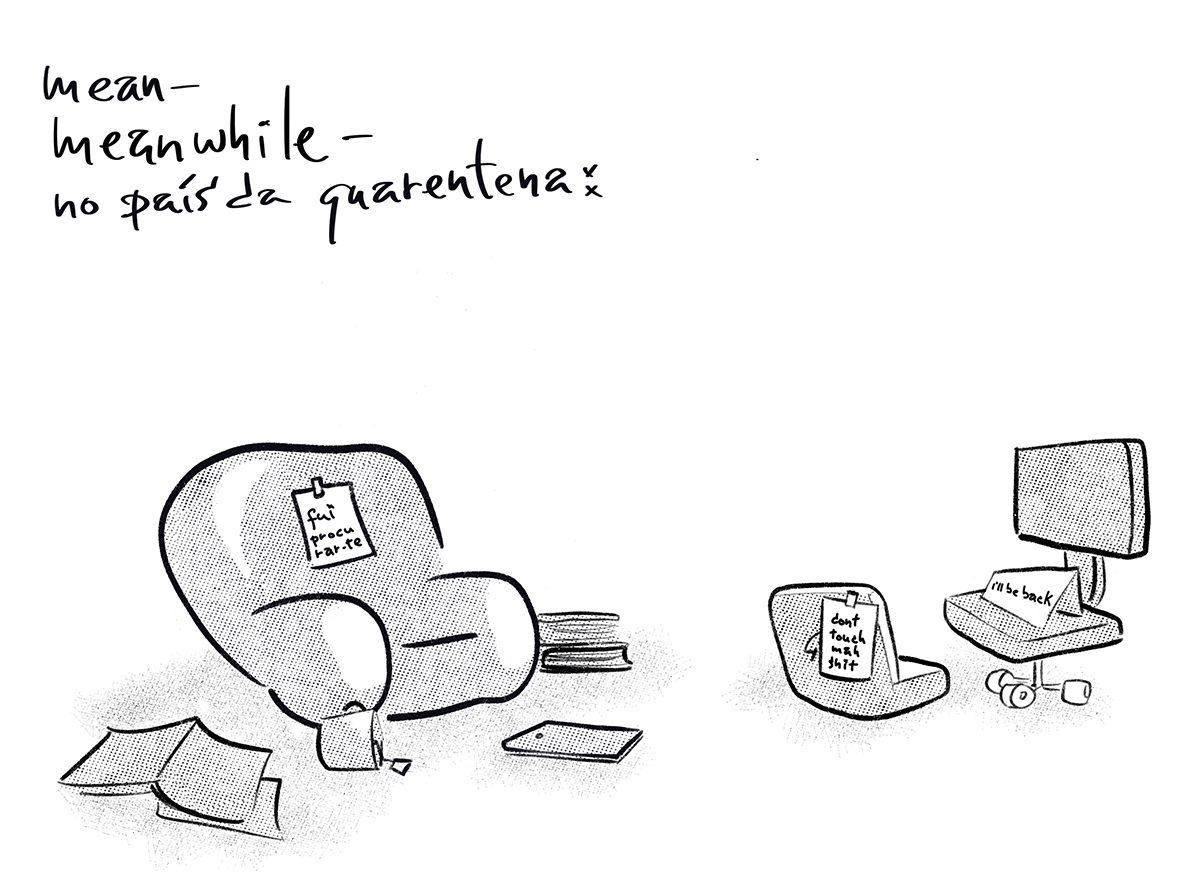dar até doer
« when the gift is used, it is not used up »
No seguimento dos últimos tópicos recuperamos à vossa atenção o texto de hoje: a economia da gratificação na cultura, e quem nesta explora o $$$ : “Gratuity: Who Gets Paid When Art Is Free”.
Artistic or creative pursuits, endeavors that are typically pursued for the intrinsic joy of sharing one’s gifts, are also frequently commoditized and placed on the market. Are they part of the gift economy or the transaction economy?
in "Gratuity: Who Gets Paid When Art Is Free" 23 mar 2020
Da economia do gift — não vamos traduzir, adiante percebem o jogo de palavras que queremos manter... — citam-se duas obras / mesmo título, diferentes décadas: "The Gift" 1925 de Marcel Mauss e de Lewis Hyde o "The Gift" 1983. Este último "focused primarily on the arts", o primeiro estuda sociedades onde essas trocas "serve as a robust supplement to economic transactions":
Acts of seemingly disinterested generosity provided a social glue that bonded groups together [com] the offsetting advantage of creating goodwill and a sense of responsibility toward others.
in "Gratuity: Who Gets Paid When Art Is Free" 23 mar 2020
Arrancando de paralelos a actividades às que não se dá ainda um valor – funny! — como pais que tomam conta dos filhos, filhos que tomam conta dos pais, outras tarefas em círculos alargados da domus à comunidade, conclui que “the gift economy is almost as large as the transaction-based economy”. Este é um capítulo do capitalismo moderno em choque com a natureza humana (não são todos?) que não podemos opinar muito além, mas uma pesquisa rápida confirma suspeições e marcamos tom com resumo a exemplo:
Valuing unpaid elder care:
Because no money changes hands, economists don’t count unpaid caregiving when they tabulate GDP – the sum of all economic activity. But [...] more than 43.5 million people provide their loved ones with estimates [of] US$470 billion worth of care – an amount that exceeds the gross domestic product of 170 of the world’s 195 nations.
in "Why the daunting economics of elder care are about to get much worse" 2 mar 2018
Introduções feitas, o nosso gift começa aqui:
Creative people themselves are gifted — even the language we use here is revealing — and they feel a strong drive to share their gift with others. Even more intriguing, their lives prove the most incredible claim made by Hyde: the seemingly paradoxical assertion that gifts increase in value when given away.
in "Why the daunting economics of elder care are about to get much worse" 2 mar 2018
Diz que não? Quanto mais dás, mais valem? Dizemos que sim, e se são habituais neste espaço estamos a pregar aos convertidos.A arte da Arte.
How can that possibly be true? When measured in dollars and cents, the act of giving destroys value. It certainly doesn’t in the arts.
in "Why the daunting economics of elder care are about to get much worse" 2 mar 2018
Com exemplo da música às "anti-commodity" (*) Se o vosso truly soubesse tocar algum instrumento teria seguido para outro tipo de bandas., "a thing that isn’t exhausted when used or given away but gets larger and more valuable":
The more a musician gives, the greater the total value created. The musician who plays alone in the practice room creates very little value, either in dollars or in the less tangible metrics of gift exchange. But when that same song is performed for a thousand people, its value increases enormously—and the catalyst here isn’t the transaction (the ticket price, for example), but the song itself, which becomes more powerful through this act of sharing. In that way, a song is like love or friendship or trust, those other anti-commodities that increase with the giving. The same is true of a painting or novel or dramatic production.
in "Why the daunting economics of elder care are about to get much worse" 2 mar 2018
E chegados ao paradoxo de Hyde:
When the gift is used, it is not used up. Quite the opposite, in fact: the gift that is not used will be lost.
in "Why the daunting economics of elder care are about to get much worse" 2 mar 2018
E se fossemos happy-goin'punx ficávamos por aqui mas OS POSITIVOS não são conhecidos pelo seu "kumbaya-on-steroids vibe" que o autor menciona no seu texto. Esse soma e segue de comparações com outras que vos queremos devolver. A realidade, além de complexa e puta, é conhecida. Vamos a essa em partes. Primeira:
We have now come to the crux of the dilemma facing gifted people in our cultural ecosystem, one that in the digital age has grown into a crisis. All creative people grasp, if only subconsciously, that their gifts were meant for giving. Even more to the point, they know that the value of their gift increases (for both giver and receiver) through that open-hearted act of exchange. We even have a special term for it now: going viral.
But virality comes at a steep price—for the simple reason that is has no price. The very act of sharing undermines the financial value of the gift. The power of the gift erodes as soon as you demand payment. You could call this the “paywall dilemma.” So take your pick—do you give or do you sell? When you embrace one of these strategies, it limits your freedom to pursue the other. In an extreme case, staying true to your gift may undermine the economic basis of your life, and even paying the rent and putting food on the table become acute challenges. On the other hand, when a gifted artist focuses primarily on financial gain, the gift is debased and might disappear completely.
in "Why the daunting economics of elder care are about to get much worse" 2 mar 2018
A continuar.

